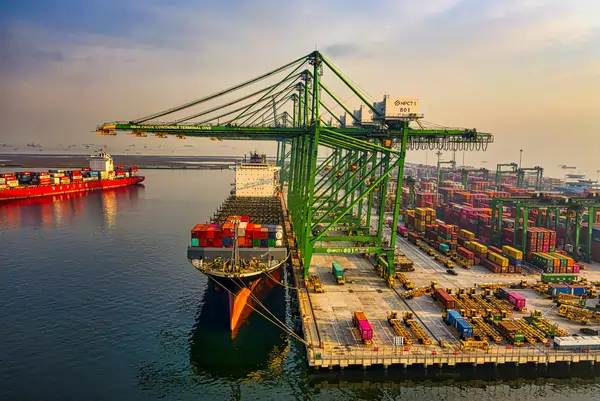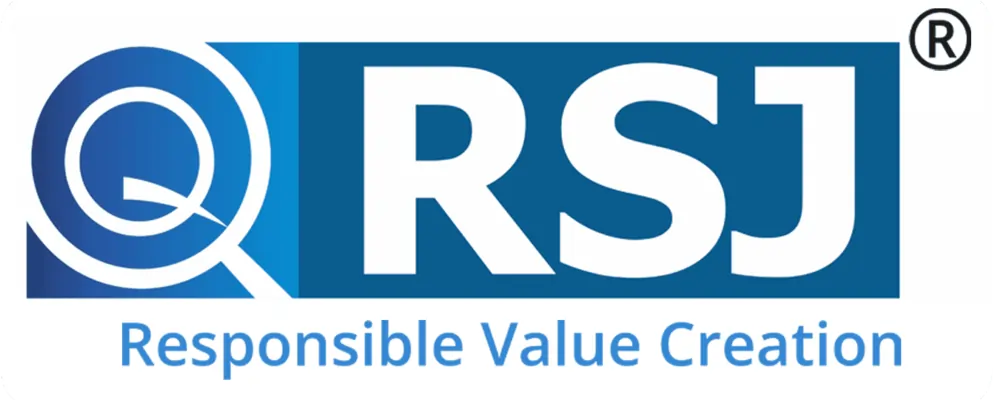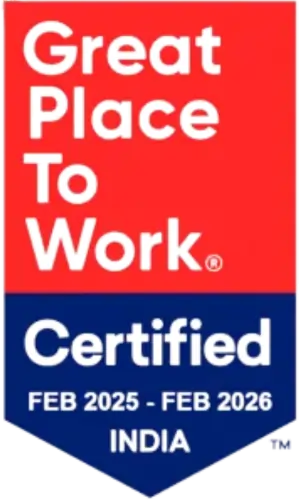Talk to an Expert
Secure Your Supply Chain: RSJ’s CTPAT Audit Services
In today’s complex global trade environment, ensuring the security of your supply chain is paramount. The Customs-Trade Partnership Against Terrorism (CTPAT) program, led by U.S. Customs and Border Protection (CBP), is a vital voluntary initiative for businesses committed to robust security practices. To remain CTPAT Compliant not only strengthens your supply chain against terrorism and other illicit activities but also offers significant benefits, including expedited cargo processing and fewer customs examinations.
RSJ Inspection Service Limited is your trusted partner for navigating the CTPAT audit process. As an experienced third-party inspection and audit company with a strong presence in key Asian manufacturing hubs like India, China, Bangladesh, Pakistan, and Vietnam, we provide comprehensive CTPAT audit services designed to assess your security measures, identify vulnerabilities, and guide you towards compliance with CTPAT requirements. Partner with RSJ to enhance your supply chain security, meet CTPAT security requirements, and gain a competitive edge.

16 + Years of Service
38,000 + Man Days
Trusted by 500 + Businesses

4.9/5 Stars Rating from Customer Reviews on Google*
*Based on 456 Reviews on Google Business Reviews
What is CTPAT? Understanding the Program
The Customs-Trade Partnership Against Terrorism (CTPAT) is a voluntary U.S. Customs and Border Protection (CBP) program designed to strengthen international supply chains and improve U.S. border security. Launched in November 2001, this government-business initiative encourages companies to implement robust security measures in exchange for benefits, such as expedited processing of their cargo.
Key Tenets of CTPAT:
- Voluntary Participation: US Companies willingly join and commit to security standards.
- Supply Chain Focus: Aims to secure the entire supply chain from point of origin to point of distribution.
- Risk-Based Approach: Companies conduct risk assessments to identify and mitigate vulnerabilities.
- Public-Private Partnership: Collaboration between CBP and the trade community.
- Mutual Recognition: CTPAT has Mutual Recognition Agreements (MRAs) with several foreign customs administrations, meaning CTPAT standards are recognized by other countries, and vice-versa.
Why CTPAT Audit Matters for Your Business
Ensuring CTPAT Compliance through a successful CTPAT audit is more than a compliance checkbox; it’s a strategic business advantage:
- Enhanced Supply Chain Security: Identify and mitigate risks of terrorism, smuggling, and theft within your supply chain.
- Expedited Customs Processing: Benefit from fewer CBP examinations and shorter wait times at U.S. borders (e.g., access to FAST lanes).
- Reduced Inspection Rates: CTPAT members are considered lower risk, leading to fewer inspections and associated costs/delays.
- Priority Resumption: Business resumption priority following natural disasters or terrorist attacks.
- Improved Brand Reputation & Trust: Demonstrates a commitment to security, enhancing credibility with partners and customers.
- Competitive Advantage: Sets your business apart as a secure and reliable trading partner.
- Compliance with Forced Labor Requirements: CTPAT now includes a focus on preventing forced labor in supply chains, a critical compliance area.
A thorough supply chain security audit is the first step towards realizing these benefits.
Who is Eligible for CTPAT Membership?
A wide range of businesses involved in international trade are eligible to apply for CTPAT certification, including:
- U.S. Importers of Record
- U.S. Exporters
- Highway Carriers (U.S./Canada & U.S./Mexico cross-border, Mexico long-haul)
- Rail, Sea, and Air Carriers
- U.S. Marine Port Authority and Terminal Operators
- Consolidators (U.S. air freight, ocean transportation intermediaries, NVOCCs)
- Mexican and Canadian Manufacturers
- Certain invited Foreign Manufacturers
- Licensed U.S. Customs Brokers
- Third-Party Logistics Providers (3PLs)
- Customs House Agents (CHAs)
RSJ offers CTPAT Audit Services to US Importers for their supply chain in Asia and also to suppliers/facilities in Asia suppling merchandise in US market. Through the CTPAT Audit, the security risks can be determined, and appropriate risk mitigation strategies/corrective actions can be developed and enforced by the auditees.
RSJ CTPAT Training Services
- CTPAT Training Services (Optional Add-on):
- o RSJ can offer tailored CTPAT training sessions for your staff and key suppliers on CTPAT criteria, security best practices, and maintaining compliance.
CTPAT Training Program Overview
The Customs-Trade Partnership Against Terrorism (CTPAT) is a voluntary, security-focused initiative led by U.S. Customs and Border Protection (CBP). Designed to strengthen international supply chains and improve border security, CTPAT encourages businesses to take a proactive role in securing their operations against terrorism and other threats.
At RSJ Inspection Service Ltd., our CTPAT Training Program is tailored for exporters, manufacturers, logistics providers, and supply chain professionals who wish to align their practices with CTPAT requirements and enhance their credibility with U.S. importers. Through structured sessions led by experienced trainers, this program equips your team with the necessary knowledge and tools to implement effective security measures across your operations.
Why Should You Enrol?
- ✔ Strengthen Global Trade Security: Understand the vital role your organization plays in the international supply chain and how CTPAT participation mitigates risks.
- ✔ Enhance Business Credibility: Demonstrate a strong commitment to compliance, which improves trust and opens doors to U.S. importers.
- ✔ Mitigate Risks and Improve Preparedness: Learn to identify vulnerabilities in your operations and implement preventive measures.
- ✔ Business Advantage: CTPAT compliance can be a key differentiator when competing for contracts from U.S.-based clients and multinational brands.
Learning Objectives & Outcomes
By the end of the training, participants will:
- ✅ Gain comprehensive knowledge about CTPAT’s objectives, framework, and benefits.
- ✅ Understand how to conduct a security risk assessment for their facility and operations.
- ✅ Identify common security gaps and develop action plans to close them.
- ✅ Learn to build internal controls and staff training programs to ensure long-term compliance.
- ✅ Improve awareness of how physical and cyber security standards impact international shipping.
- ✅ Be better positioned to participate in or support CTPAT validation processes by U.S. importers.
Topics Covered in the Training
Our program covers all the Minimum-Security Criteria (MSC) outlined by CBP, specifically for foreign manufacturers. Key topics include:
- Introduction to CTPAT
- Background, goals, and program structure
- How CTPAT fits into global supply chain security
- Security Risk Assessment
- Identifying threats, vulnerabilities, and consequences
- Documenting and reviewing risk assessments regularly
- Physical Security
- Perimeter fencing, lighting, lock systems, and security monitoring
- Access Controls
- Employee and visitor identification
- Controlled entry points and employee vetting
- Personnel Security
- Background checks
- Hiring policies and disciplinary procedures
- Procedural Security
- Secure handling of shipments
- Documentation accuracy and shipping integrity
- Security Training and Awareness
- Training programs for all levels of staff
- Creating a security-aware culture in the organization
- Container & Seal Security
- Best practices in container inspection and seal controls
- Cybersecurity
- Protection of IT infrastructure and data
- Preventive measures against digital threats
- Conveyance Security
- Secure transport from origin to destination
- Vetting of carriers and third-party service providers
Key Benefits of the RSJ CTPAT Training
- 🛡️ Improved Facility Security: Proactively address security gaps to minimize risks to personnel, property, and shipments.
- 🚀 Competitive Advantage: Position your business as a trusted partner to U.S. brands and buyers by demonstrating compliance and readiness.
- 📈 Sustainable Growth: Strengthen your reputation and open up new business opportunities with buyers who prioritize secure supply chains.
- 📘 Expert-Led Guidance: Learn directly from professionals who understand both auditing and compliance intricacies.
Who Should Attend?
- Exporters and manufacturers shipping goods to the U.S.
- Compliance and QA managers
- Security personnel and facility managers
- Supply chain and logistics teams
- Trade and documentation teams
CTPAT Audit Scope
Our CTPAT audits meticulously assess your compliance against the CTPAT Minimum Security Criteria, which cover a broad range of security topics. A comprehensive CTPAT audit checklist is utilized.
- Business Partner Requirements: Verifying processes for screening and monitoring the security practices of your international supply chain partners.
- Container and Conveyance Security: Procedures for maintaining container integrity, proper sealing, and conducting inspections. Preventing unauthorized access.
- Physical Access Controls: Measures to prevent unauthorized entry to facilities, including gates, fencing, locks, and identification systems.
- Personnel Security: Procedures for screening new hires and conducting background checks where applicable, as well as termination procedures.
- Procedural Security: Documented processes for handling cargo, information flow, manifest accuracy, and reporting security incidents.
- Security Training and Threat Awareness: Programs to educate employees on security policies, threat recognition (terrorism, smuggling, forced labor), and reporting.
- Information Technology (IT) Security: Measures to protect IT systems and data, including password policies and cybersecurity protocols.
- Agricultural Security: Measures to prevent contamination of cargo with agricultural pests.
- Forced Labor Prevention: Documented processes and due diligence to ensure no forced labor is used in supply chains importing goods into the U.S.
Benefits of a Successful CTPAT Audit & Certification with RSJ
Partnering with RSJ for your CTPAT audit and certification journey offers more than just compliance:
- Expert Guidance: Leverage our deep understanding of CTPAT requirements and audit methodologies.
- Risk Reduction: Proactively identify and mitigate security vulnerabilities in your supply chain security.
- Global Coverage, Local Expertise: Benefit from our on-the-ground audit teams in India, China, Bangladesh, Vietnam, and Pakistan.
- Actionable Insights: Our detailed CTPAT audit reports provide clear findings and practical recommendations.
- Long-Term Partnership: We support your continuous improvement in supply chain security.
CTPAT Training & Continuous Improvement
Maintaining CTPAT compliance is an ongoing commitment. RSJ can support your efforts through:
- Tailored CTPAT Training Programs: We can develop and deliver customized training for your employees and key business partners, covering all aspects of CTPAT security requirements, including the critical new focus on CTPAT forced labour prevention. Training can cover topics like understanding CTPAT Minimum Security Criteria, conducting the Risk Assessment Process, container security, threat recognition, and documentation.
- Investing in training and continuous improvement ensures your CTPAT compliance remains robust and effective.
F.A.Q. – Your CTPAT Audit Questions Answered
CTPAT stands for Customs-Trade Partnership Against Terrorism. It’s a voluntary supply chain security program led by U.S. Customs and Border Protection (CBP).
A CTPAT Audit is a process where U.S. CBP reviews a company’s supply chain security measures to ensure they meet the CTPAT Minimum Security Criteria.
CTPAT requirements for manufacturers include robust measures for physical security, access controls, personnel security, container security, procedural security, IT security, security training, and now, addressing forced labor risks.
CTPAT requirements for manufacturers include robust measures for physical security, access controls, personnel security, container security, procedural security, IT security, security training, and now, addressing forced labor risks.
A CTPAT audit checklist covers all areas of the Minimum-Security Criteria, including business partner screening, container security, physical access controls, personnel security, procedural security, IT security, security training, and threat awareness.
No, the official CTPAT certification and validation audits are conducted by U.S. Customs and Border Protection (CBP). RSJ provides expert CTPAT audit services in the form of assessments, gap analysis to help companies successfully meet CBP’s requirements.
No, the official CTPAT certification and validation audits are conducted by U.S. Customs and Border Protection (CBP). RSJ provides expert CTPAT audit services in the form of assessments, gap analysis to help companies successfully meet CBP’s requirements.
The CTPAT Portal is a web-based system used by companies to apply for CTPAT, submit their security profiles, and communicate with CBP.
RSJ will provide a detailed report outlining these weaknesses along with actionable recommendations. This allows you to address these critical issues.
RSJ helps companies understand and implement due diligence processes to identify, mitigate, and remediate forced labor risks within their supply chains, aligning with CTPAT’s updated criteria.
The 5-Step Risk Assessment Process is a methodology recommended by CBP for CTPAT partners. It generally involves:
- Mapping cargo/data flow & identifying business partners,
- Conducting a threat assessment,
- Conducting a vulnerability assessment,
- Preparing a written action plan, and
- Documenting the risk assessment procedure and reviewing it periodically.
Yes, RSJ can develop and deliver tailored CTPAT training programs to ensure your team and partners understand and can implement the necessary security measures effectively.


